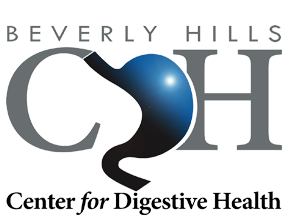Are Certain GI Conditions a Sign of COVID?
BOOK APPOINTMENTThe list of symptoms of COVID-19 has been growing and changing since the outbreak began. This leaves many wondering whether the symptoms they’re experiencing could mean they have COVID or something else entirely.
Some of these symptoms are associated with gastrointestinal conditions.
Can symptoms like diarrhea, nausea and abdominal pain be symptoms of COVID-19?
The short answer is: yes. The most common signs of COVID-19 are usually to do with the respiratory system, but the gastrointestinal system can also be affected by the virus as well.
A quarter of all patients with COVID-19 exhibited some form of GI-like symptoms. Symptoms such as a loss of appetite and loss of taste, diarrhea, constipation, and abdominal pain are all commonly found in patients with COVID-19.
Those suffering from COVID-19 may simply present symptoms of GI conditions and not display any of the more common symptoms such as difficulty breathing or excessive coughing. Thus, it is crucial that you constantly monitor your health, and if you do experience any new symptoms similar to those of GI conditions, get in touch with your doctor or gastroenterologist as soon as possible.
It might not be a sign of COVID-19
However, if you have a history of gastrointestinal conditions and you experience symptoms similar to those discussed above, it could simply be your previous conditions acting up. In this case you should seek advice from your gastroenterologist first, as they will be able to tell you whether your symptoms are associated with a GI condition or you should get tested for COVID-19.
It is common for patients with symptoms like abdominal pain and nausea to experience a delay in a COVID-19 diagnosis as doctors initially think it is something else. But you may never exhibit symptoms more commonly associated with the virus, such as those that affect the respiratory system, and still be suffering from both a GI condition and COVID-19. Thus, it is important that you seek advice as soon as you start displaying symptoms of any kind.
What else could it be?
Other causes for the symptoms discussed above include things like food poisoning, so it is important to consider these other possibilities before you jump to the conclusion that you might have COVID-19. As always, it’s best to seek the advice of a professional, so reach out to your doctor or gastroenterologist if you start exhibiting symptoms.
Our Blogs
Accurate Diagnostics for Anorectal Strength and Function
Back to BlogsAre you having problems producing healthy bowel movements? The problem may be the muscles around your digestive tract either not coordinating properly or lacking strength. To get your GI problems addressed as soon as possible, visit the Beverly Hills...
Pelvic Floor Dysfunction?
Back to BlogsPelvic floor dysfunction is the inability to relax and coordinate your pelvic floor muscles to allow for smooth defecation. Fortunately, there are treatments available, including biofeedback, medications, and physical therapy. Reclaim strength and comfort...
Cutting-Edge, Compassionate Care Can Help You Find Hemorrhoids Relief
Back to BlogsHemorrhoids can be debilitating and painful, but treatment is available. If you’re suffering from hemorrhoids, make an appointment at the Beverly Hills Center for Digestive Health. We offer cutting-edge, compassionate care to help you find hemorrhoids...
Call to Schedule
Our office is available to answer your questions and evaluate your symptoms.

Phone
(310) 855-0222
Fax: (949) 404-6467
Hours
Mon - Fri: 9am – 5pm
Sat - Sun: Closed